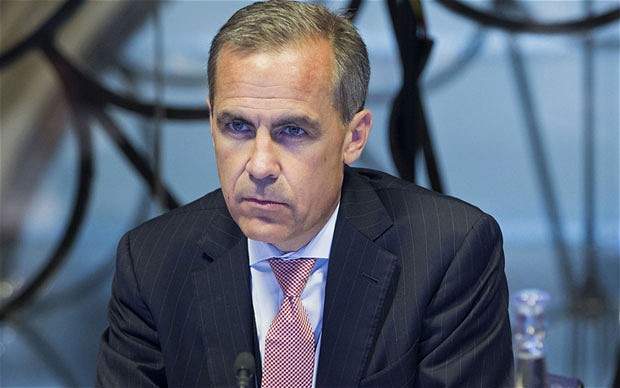
QE was meant to stimulate the economy, sucking future growth back to today, but it has also left the future pantry bare, says Stephen Hill.
There is more to Mark Carney’s disguised drop-shots about lowering interest rates and restarting QE than meets the eye. He was only too happy to quote Brexit as the reason why during the campaign itself – as his own excuse for a post-Brexit sugar rush for the economy – as he knew full well the economy would be tanking anyway.
The real issue Carney is ducking is this: the economic malaise gripping the world economy has been caused by mis-management by the central bankers ever since… 2005, since 2001, 1992… since 1986 – Oh, well, pretty much ever since Fed chairman William McChesney Martin told Wall Street why he was removing the punch bowl, before their party in 1955 got really out of control.
This was the signal error of Sir Alan Greenspan, knighted on the orders of Tony Blair for ‘services to financial stability’ on the eve of the global credit crunch – we should have known! – from 2005, when he failed to raise interest rates and left the punch bowl out overnight, just as those Wall Street mortgage-grinders poured in the Russian vodka to make the party really take-off.
The resultant super-excesses ended up as the global credit crunch, which left the central bankers running out of the back door to grease up their money-printing presses. As they did this, they discovered that their biggest customers – their own governments – would rapidly be bankrupted by these same central bankers themselves, if ever they dared to raise interest rates on their resultant QE largesse. Yes, they had, or hadn’t, learnt a new economic tautological exactitude: namely, QE = zero interest rates, or else.
Luckily for them, inflation didn’t like the look of what was going on, and decided to let deflation have a turn at running the asylum instead. Quite how that happened, no one knows for sure, but no doubt there’s a good explanation to be discovered somewhere. Perhaps it’s even this: QE was a deflationary device anyway when used in such vast quantities, as in QE 1, QE 2 and QE 3 in the Anglo-American world, and as in QE 1 and then bi-monthly thereafter in the EU, whereas in China they have lost count, while in Japan it’s all spelt backwards, so no one really remembers.
That might well be why there is no real growth left in the world, or something like it. QE was meant to stimulate the economy, sucking future growth back to today, but it has also left the future pantry bare. In other words, Brexit’s got nothing to do with it, whereas these personal, mortgage, bank and central government debts, have. The failure of central banking lies at the start, and the heart, of the coming storm, wherein a growth-less global economy is hit by the headwinds of underpriced and under-yielding debt, because ever since 2005 or earlier, the central bankers have failed in their first and foremost duty: to price in correctly the cost of money, stupid!
This basic economic failure has instead created asset (property, art and jewellery) and stock market bubbles the likes of which have never been seen before. And yes, you’ve guessed it, these low-yielding bubbles are what the bankers have ‘secured’ their loans on. Austerity, where is thy sting when we need you most? Don’t worry, it’s on its way, in 2017-2019, and this time it will be called the global crash. All you’ll remember when it comes is that you read about it first on the Spear’s. But who first warned you, back in July 2007, that the global credit crunch was on its way?






